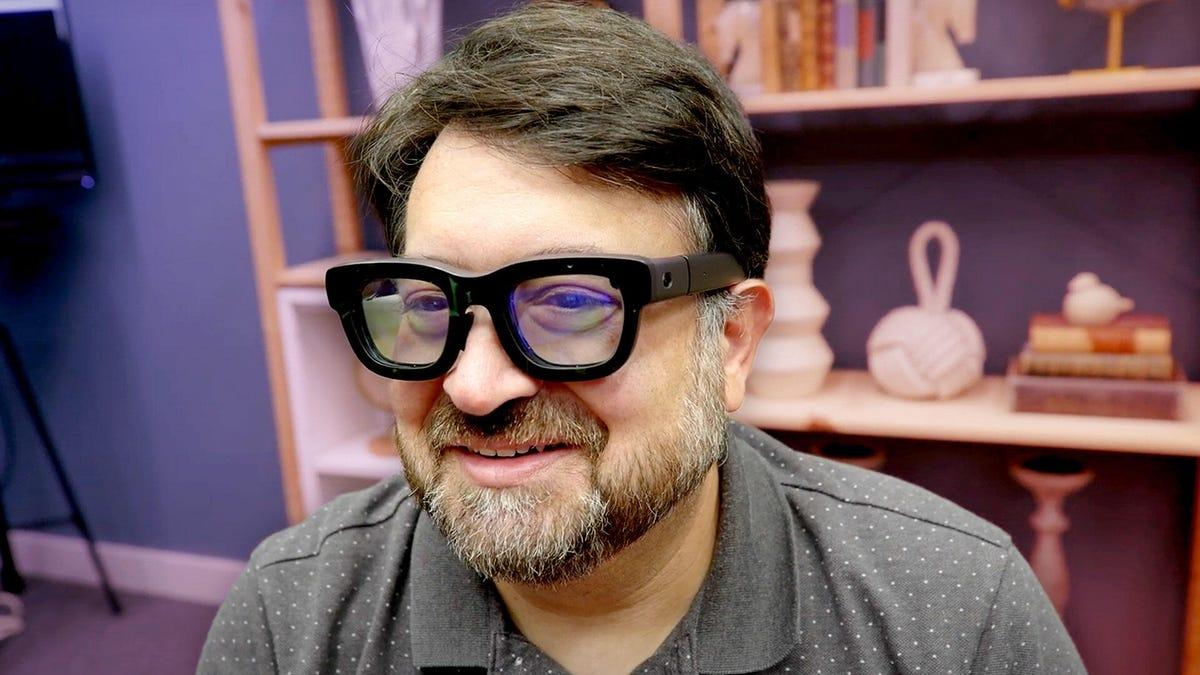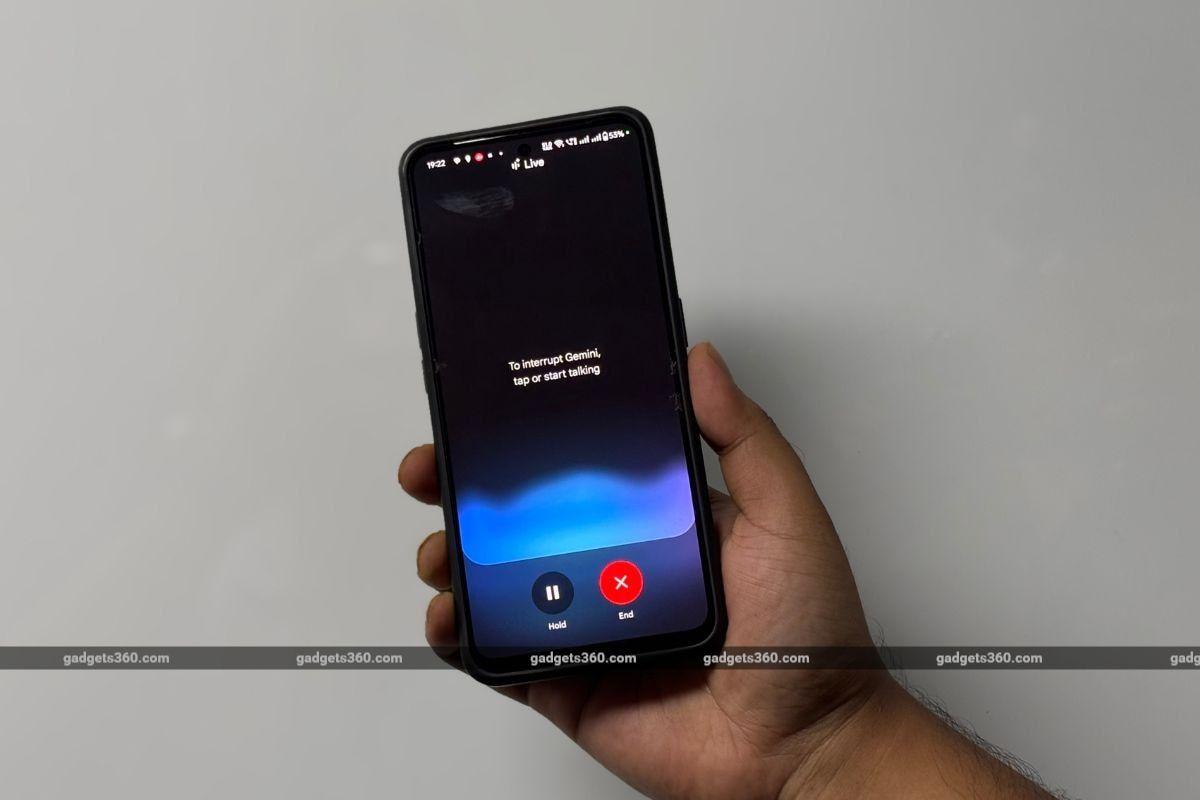Indian-Origin Techie Develops AI-Powered Wearable for Infinite Memory
3 Sources
3 Sources
[1]
Indian-origin techie develops AI that not only captures every moment of your life but also tells you what to focus on
Advait Paliwal, an Indian-origin entrepreneur, has introduced Iris, an AI wearable device that captures life moments by taking pictures every minute. The device uses AI to organize and caption these images, helping users remember details. While it offers benefits for health and safety, privacy concerns have been raised.Advait Paliwal, an Indian-origin entrepreneur, has launched a new wearable device named Iris, promising users "infinite memory" of their life. The announcement was made through a social media post, highlighting the device's unique capabilities. Iris is designed to capture photographs every minute and stores them on the device or uploads them to the cloud. This aims to document daily moments and identify patterns that might go unnoticed. The wearable also uses AI to organize and caption these images, creating a detailed timeline. Paliwal stated that the device can assist users in remembering forgotten details. "Iris also has a focus mode. It notices when you get distracted and proactively tells you to get back on track," Paliwal mentioned in his blog post. The device's design is inspired by the evil eye symbol. Paliwal worked on it at Augmentation Lab in Cambridge, a hacker accelerator program for AI and hardware. His presentation of Iris at the MIT Media Lab was well-received by over 250 attendees. Paliwal emphasized the potential benefits of Iris, including aiding doctors in understanding patient habits, ensuring workplace safety, and assisting in elderly care without being intrusive. However, he acknowledged the device might raise privacy concerns. "There are good and bad sides to this. On one hand, Iris could really help people with memory problems or help us stay focused on our goals. But it also raises concerns about privacy and how these recordings might be used," Paliwal wrote. Despite the potential privacy issues, Paliwal believes it is ultimately up to users to decide how to use the device. He referenced past attempts at similar technology, such as Google Clips, which faced detection challenges and was eventually discontinued. One commenter on X expressed discomfort with constant photo-taking, to which Paliwal replied, "people are constantly taking mental photos anyway."
[2]
Indian-origin founder reveals wearable device that gives you 'infinite memory of life'
Iris, he explained, is a device that "takes pictures of every minute" which are then stored on the device or uploaded to the cloud. The idea behind the device is to document the small moments of life and capture "the little moments we usually let slip away, revealing patterns we never noticed." The device not only takes photographs but also captions and organises the pictures into a timeline. It uses AI to help wearers remember forgotten details. "Iris also has a focus mode. It notices when you get distracted and proactively tells you to get back on track," Paliwal added. In his blog post, the India-born, San Francisco-based entrepreneur said the device's design is inspired by the evil eye symbol. He said he spent the summer working on the device at Augmentation Lab in Cambridge, which is a two-month hacker accelerator residency programme for AI and hardware talent. At the end of the programme, he presented Iris to over 250 people at the MIT Media Lab. "Many loved the idea and even wanted to get one for themselves," he claimed. Paliwal highlighted the safety and health benefits of Iris, suggesting doctors can use it to understand a patient's daily habits. "In workplaces, it could be used to ensure people are following safety protocols. For elderly care, it could help caregivers monitor patients without being intrusive," he noted. The idea of "lifelogging" is not new, he said, reminding readers of Microsoft Research that created a camera to assist Alzheimer's patients. He also gave the example of Google Clips, a small, hands-free, AI-powered camera launched by Google in October 2017. Google Clips "attempted to autonomously capture important moments but struggled with accurate detection, resulting in discontinuation," Paliwal said. At the same time, he acknowledged that some users may have privacy concerns with such a device. "There are good and bad sides to this. On one hand, Iris could really help people with memory problems or help us stay focused on our goals. But it also raises concerns about privacy and how these recordings might be used," he wrote, adding that at the end, it is users who decide how to use a device. Paliwal was met with similar privacy concerns on X. "It's an interesting concept, but I wouldn't want to interact with someone who had this on, taking a photo every minute," wrote one person, to which he responded saying that people are "constantly taking mental photos anyway."
[3]
Indian-origin techie's device that 'takes a picture every minute' raises privacy concerns
An Indian-origin inventor has invented a wearable device that he claims will provide users with "infinite memory" of their lives. Advait Paliwal announced the launch of Iris, an AI wearable, via social media yesterday. Iris, he continued, is a device that "takes pictures of every minute" and stores them on the device or uploads them to the cloud. The device is designed to catch "the little moments we usually let slip away, revealing patterns we never noticed." The device shoots photos, captions them, and arranges them chronologically. It employs artificial intelligence to assist wearers in recalling previously forgotten data. "Iris also has a focus mode. It notices when you get distracted and proactively tells you to get back on track," Paliwal added. In his blog post, the India-born, San Francisco-based entrepreneur stated that the evil eye symbol inspired the device's design. He stated that he spent the summer working on the device at Augmentation Lab in Cambridge, a two-month hacker accelerator residency program for AI and hardware talent. At the end of the program, he introduced Iris to approximately 250 people at the MIT Media Lab. "Many loved the idea and even wanted to get one for themselves," he told me. Paliwal was confronted with comparable privacy difficulties on X. Here's what people wrote. Also read: Indian born techie tours his Silicon Valley home in a viral video, internet calls it beautiful What do you think about this? Tell us in the comments.
Share
Share
Copy Link
An Indian-origin entrepreneur has created a groundbreaking AI-powered wearable device that captures and analyzes every moment of a user's life, offering a form of 'infinite memory'.

Revolutionary Wearable Device Unveiled
Indian-origin entrepreneur Anmol Tukrel has introduced a groundbreaking wearable device that promises to revolutionize how we remember and interact with our daily experiences. The device, which takes a photo every 30 seconds, is designed to capture and store an individual's entire life, effectively providing users with an "infinite memory"
1
.AI-Powered Life Logging
The wearable, developed by Tukrel's company Rewind AI, utilizes advanced artificial intelligence to not only record but also analyze and categorize the captured moments. This AI-driven approach allows users to easily search and retrieve specific memories or information from their past experiences
2
.Privacy and Data Security
Addressing potential privacy concerns, Tukrel emphasizes that all data is stored locally on the user's device, ensuring that personal information remains under the individual's control. The AI processing also occurs on-device, further enhancing data security and user privacy
3
.Potential Applications and Benefits
The device's capabilities extend beyond mere memory enhancement. It can assist in various scenarios, such as recalling important conversations, tracking daily activities, or even aiding in personal growth and productivity. For individuals with memory-related conditions, this technology could prove particularly beneficial
1
.Related Stories
Technological Specifications
The wearable device is equipped with a camera, microphone, and various sensors to capture a comprehensive record of the user's surroundings and experiences. Its AI algorithms can process this data in real-time, providing insights and allowing for quick retrieval of specific information
2
.Future Implications and Ethical Considerations
As this technology continues to develop, it raises important questions about the nature of memory, privacy, and the potential societal impacts of having access to such detailed personal records. Experts suggest that while the device offers numerous benefits, it's crucial to consider the ethical implications and potential misuse of such powerful technology
3
.References
Summarized by
Navi
[2]
Related Stories
Harvard Dropouts Launch Controversial 'Always-On' AI Smart Glasses
21 Aug 2025•Technology

Omi AI Unveils Wearable AI Companion with Future Brain-Reading Capabilities at CES 2025
09 Jan 2025•Technology

Meta Revives Facial Recognition Plans for Next-Gen Smart Glasses, Raising Privacy Concerns
09 May 2025•Technology

Recent Highlights
1
Anthropic releases Claude Opus 4.6 as AI model advances rattle software stocks and cybersecurity
Technology

2
University of Michigan's Prima AI model reads brain MRI scans in seconds with 97.5% accuracy
Science and Research

3
UNICEF Demands Global Crackdown on AI-Generated Child Abuse as 1.2 Million Kids Victimized
Policy and Regulation





